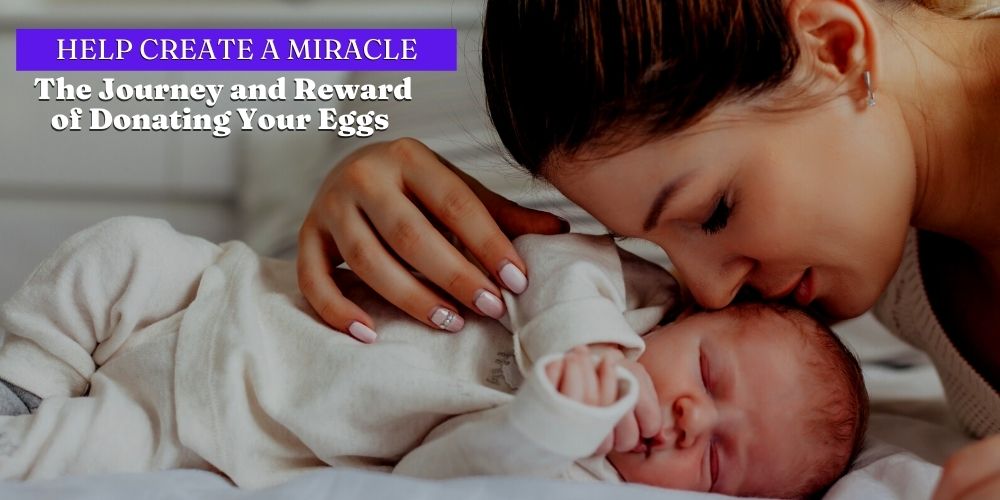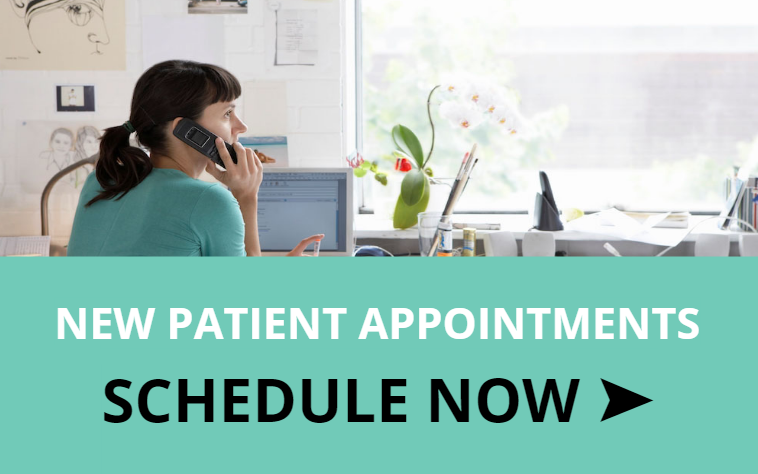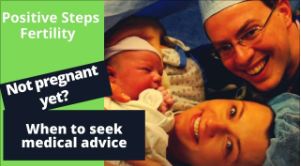Becoming an egg donor is a wonderful opportunity to help someone struggling with infertility, and it comes with many financial benefits as well. Your donation could be a happy ending for a woman or couple who have been through an arduous fertility journey.
However, before you jump into the process of egg donation, there are many things to consider. Let’s discuss what becoming an egg donor means, how it affects your fertility and life after treatment is complete, and what qualifications you need to become an egg donor candidate.
Understand What Becoming an Egg Donor Means
Before you begin the process of becoming an egg donor, it’s essential to understand what being an egg donor means. An egg donor is a woman who offers her eggs for fertilization and implantation into another woman’s uterus. In this way, she can help produce a child for someone else. The resulting baby is not genetically related to the donor; instead, it has two parents from whom it will inherit DNA–the father who provided sperm and the mother who carried and gave birth to him or her.
To become an egg donor you must meet the following criteria:
- Between 21 and 29 years of age
- In good health (healthy weight and a non-smoker)
- Have no family history of serious hereditary diseases
Couples can use the egg donation process without access to their own gametes (eggs). There are also cases where one member of a couple has fertility issues that make pregnancy impossible without assistance from another woman’s eggs (and perhaps even her uterus) .
In these situations, donors are paid money in exchange for their efforts and any associated costs such as travel expenses incurred during treatment cycles when they undergo hormone injections at clinics before undergoing minor surgery where fertility specialists retrieve mature oocytes (eggs). This procedure usually involves needle aspiration under sedation or general anesthesia, depending on individual preference.
Egg Donation is often essential to in vitro fertilization (IVF)
The fertilization process of donated eggs involves various steps and typically takes about three weeks to complete. The process begins with the donor taking injectable fertility drugs to stimulate egg production. The eggs are then retrieved from the donor and fertilized with the male partner’s (or sperm donor’s) sperm in a laboratory. After fertilization, the fertilized egg (embryo) or eggs (embryos) are transferred to the uterus of the intended mother. The recipient will also begin progesterone suppositories to prepare for pregnancy.
Without willing donors, this process is impossible. Women in need of egg donation cannot use their own eggs for IVF due to myriad issues like ovarian failure, low egg reserve or poor egg quality, congenital anomalies in the fetus, or advanced age. Egg donors are usually young and very fertile, and therefore have a higher success rate than an infertile woman going through IVF. The average success rate of IVF using donor eggs is between 45.8% and 53.9% .
If you think you meet the criteria for an egg donor and want to make a significant impact on a hopeful mother, consult with a fertility specialist to determine your first steps into the donation process.
Should women in their twenties worry if they donate their eggs will have enough left when they decide to get pregnant?
Women in their twenties who are considering egg donation should be aware that the process of donating eggs does not typically impact their future fertility. The body naturally produces many more eggs each month than are used in the egg donation process. The number of eggs retrieved during the donation process is typically a small percentage of a woman’s total number of eggs.
The number of eggs a typical woman has in her twenties can vary, but on average, a woman in her twenties has around 300,000 to 500,000 eggs in her ovaries. However, it’s important to note that a woman’s number of healthy eggs can vary based on individual factors such as genetics, lifestyle, and health.
A woman’s fertility declines with age, so women considering egg donation should still be aware of their own reproductive health and make informed decisions about their future family planning.
Overall, egg donation is a safe and effective way for women to help others achieve their dreams of having a family, and it is unlikely to impact their future fertility. However, anyone considering egg donation should carefully weigh the benefits and risks, and make an informed decision that is right for them.
The Steps Involved in Egg Donation
Here is the general process a woman will undergo during the egg donation process:
- Screening and evaluation : The egg donor will undergo a comprehensive medical and psychological evaluation to ensure she is healthy and suitable for egg donation.
- Synchronization : The egg donor’s menstrual cycle is synchronized with the recipient’s cycle through the use of medications. This helps ensure that the timing is optimal for the fertilization and implantation of the embryo.
- Egg retrieval : The egg donor undergoes a procedure called follicular aspiration, which involves the removal of the eggs from the ovaries using a small needle. The procedure is performed under sedation or anesthesia.
- Fertilization : The retrieved eggs are fertilized with the recipient’s partner’s or donor’s sperm in a laboratory dish. This process is called in vitro fertilization (IVF).
- Embryo transfer : Once the fertilized eggs have developed into embryos, one or more of them are transferred into the recipient’s uterus. This is typically done using a thin catheter that is inserted through the cervix.
- Pregnancy test : The recipient undergoes a pregnancy test approximately two weeks after the embryo transfer to determine if the procedure was successful.
Consider the Medical Implications of Egg Donation
Egg donation is generally a safe process and does not carry any long-term health risks, according to the American Pregnancy Association. Some side effects of egg donation exist, such as hot flashes and feeling bloated. The most common side effect of egg donation is ovarian hyperstimulation syndrome (OHSS), which occurs when your ovaries become swollen and painful as they produce more eggs than usual.
It’s important to ask your fertility specialist about any of the side effects of egg donation, as he or she will be able to assess your particular circumstances and recommend the best path forward to a seamless donation process.
Look into Opportunities for Donation
If you’re interested in becoming an egg donor, it’s important to look into all the available opportunities for donation. You should do your research and find the one that is best for you. Having said that, if this is your first time looking into donating eggs or sperm, it’s best to start by consulting with a fertility specialist.
You should expect to wait several months before hearing back from a program. The time frame depends on the number of applicants, but generally, the process takes about three months.
If you don’t hear back from a particular program within that time period, it’s worth contacting them to check up on your application status and see if there is anything else they need from you. You can also try applying to other programs; many programs have their own websites where they post their requirements for donors and updated information about how long it will take for an applicant’s application process to be completed.
If you are considering becoming an egg donor, consider the Positive Steps Egg Donor Program . We are actively recruiting for our egg donation database to link donors and recipients together. Please reach out to the practice if you are interested in learning more about becoming an egg donor or if you think you may need an egg donor.
Egg donation can be a rewarding experience.
Egg donation is a rewarding experience. It is an opportunity to help someone create their family and can be truly life-changing for the recipient. It is a way to give back to the community and make a difference in someone’s life, while also including personal financial benefits.
If you’re interested in becoming an egg donor, it’s important to do your research and find a program that fits your needs. There are many different agencies out there that offer different services, so make sure you choose wisely! It can be challenging at times, but it’s also gratifying when you know that your eggs helped create a life for another couple who may not have been able to conceive on their own.
As always, reach out to a fertility specialist if you are considering becoming an egg donor, or think you might be in need of egg donation. Don’t suffer in silence. Seek answers. Get peace.




